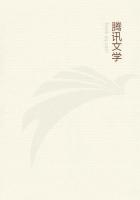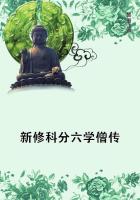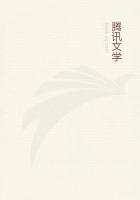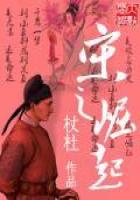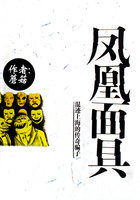OF all the travels made by man since the voyages of Dante, this new exploration along the shores of Multiplicity and Complexity promised to be the longest, though as yet it had barely touched two familiar regions -- race and sex. Even within these narrow seas the navigator lost his bearings and followed the winds as they blew. By chance it happened that Raphael Pumpelly helped the winds; for, being in Washington on his way to Central Asia he fell to talking with Adams about these matters, and said that Willard Gibbs thought he got most help from a book called the "Grammar of Science," by Karl Pearson. To Adams's vision, Willard Gibbs stood on the same plane with the three or four greatest minds of his century, and the idea that a man so incomparably superior should find help anywhere filled him with wonder. He sent for the volume and read it. From the time he sailed for Europe and reached his den on the Avenue du Bois until he took his return steamer at Cherbourg on December 26, he did little but try to kind out what Karl Pearson could have taught Willard Gibbs.
Here came in, more than ever, the fatal handicap of ignorance in mathematics.
Not so much the actual tool was needed, as the right to judge the product of the tool. Ignorant as one was of the finer values of French or German, and often deceived by the intricacies of thought hidden in the muddiness of the medium, one could sometimes catch a tendency to intelligible meaning even in Kant or Hegel; but one had not the right to a suspicion of error where the tool of thought was algebra. Adams could see in such parts of the "Grammar" as he could understand, little more than an enlargement of Stallo's book already twenty years old. He never found out what it could have taught a master like Willard Gibbs. Yet the book had a historical value out of all proportion to its science. No such stride had any Englishman before taken in the lines of English thought. The progress of science was measured by the success of the "Grammar," when, for twenty years past, Stallo had been deliberately ignored under the usual conspiracy of silence inevitable to all thought which demands new thought-machinery. Science needs time to reconstruct its instruments, to follow a revolution in space; a certain lag is inevitable; the most active mind cannot instantly swerve from its path; but such revolutions are portentous, and the fall or rise of half-a-dozen empires interested a student of history less than the rise of the "Grammar of Science," the more pressingly because, under the silent influence of Langley, he was prepared to expect it.
For a number of years Langley had published in his Smithsonian Reports the revolutionary papers that foretold the overthrow of nineteenth-century dogma, and among the first was the famous address of Sir William Crookes on psychical research, followed by a series of papers on Roentgen and Curie, which had steadily driven the scientific lawgivers of Unity into the open; but Karl Pearson was the first to pen them up for slaughter in the schools.
The phrase is not stronger than that with which the "Grammar of Science" challenged the fight: "Anything more hopelessly illogical than the statements with regard to Force and Matter current in elementary textbooks of science, it is difficult to imagine," opened Mr. Pearson, and the responsible author of the "elementary textbook," as he went on to explain, was Lord Kelvin himself. Pearson shut out of science everything which the nineteenth century had brought into it. He told his scholars that they must put up with a fraction of the universe, and a very small fraction at that -- the circle reached by the senses, where sequence could be taken for granted -- much as the deep-sea fish takes for granted the circle of light which he generates.
"Order and reason, beauty and benevolence, are characteristics and conceptions which we find solely associated with the mind of man." The assertion, as a broad truth, left one's mind in some doubt of its bearing, for order and beauty seemed to be associated also in the mind of a crystal, if one's senses were to be admitted as judge; but the historian had no interest in the universal truth of Pearson's or Kelvin's or Newton's laws; he sought only their relative drift or direction, and Pearson went on to say that these conceptions must stop: "Into the chaos beyond sense-impressions we cannot scientifically project them." We cannot even infer them: "In the chaos behind sensations, in the 'beyond' of sense-impressions, we cannot infer necessity, order or routine, for these are concepts formed by the mind of man on this side of sense-impressions"; but we must infer chaos:
"Briefly chaos is all that science can logically assert of the supersensuous."
The kinetic theory of gas is an assertion of ultimate chaos. In plain words, Chaos was the law of nature; Order was the dream of man.
No one means all he says, and yet very few say all they mean, for words are slippery and thought is viscous; but since Bacon and Newton, English thought had gone on impatiently protesting that no one must try to know the unknowable at the same time that every one went on thinking about it.
The result was as chaotic as kinetic gas; but with the thought a historian had nothing to do. He sought only its direction. For himself he knew, that, in spite of all the Englishmen that ever lived, he would be forced to enter supersensual chaos if he meant to find out what became of British science -- or indeed of any other science. From Pythagoras to Herbert Spencer, every one had done it, although commonly science had explored an ocean which it preferred to regard as Unity or a Universe, and called Order.

